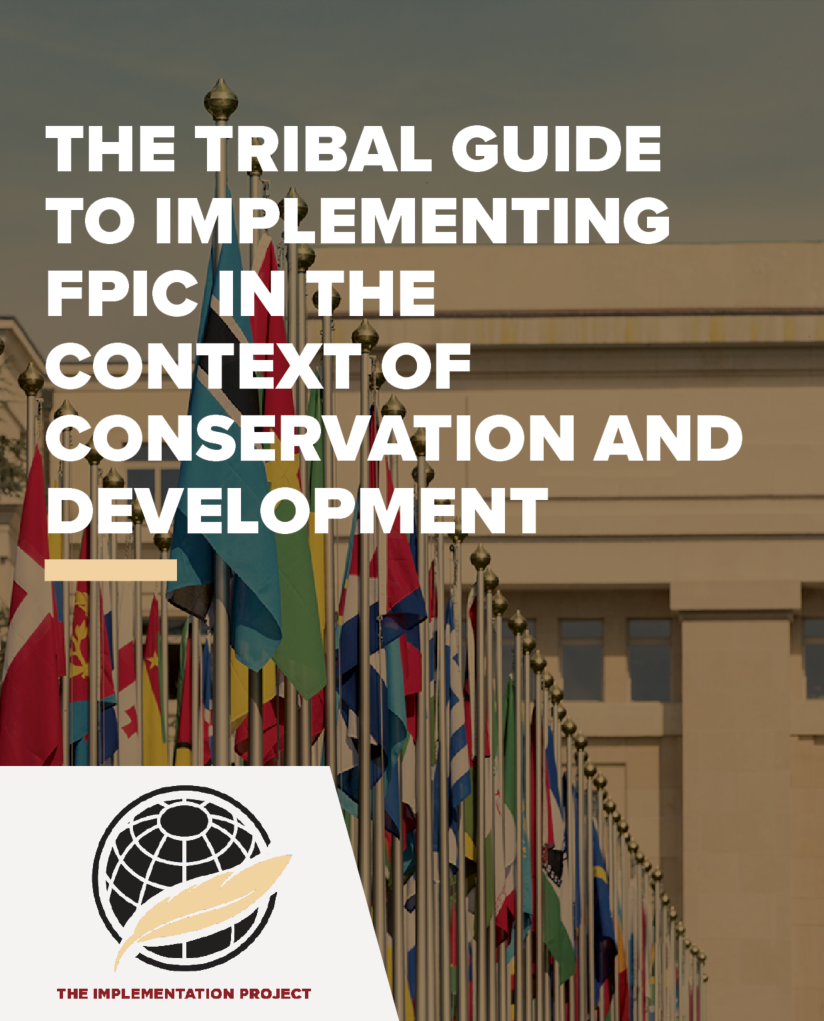The Implementation Project recently published a new resource: The Tribal Guide to Implementing FPIC in the Context of Conservation and Development. This guide seeks to provide educational information to Tribal governments regarding Free, Prior, and Informed Consent (FPIC), as articulated in the UN Declaration on the Rights of Indigenous Peoples. It focuses on opportunities to use FPIC as a tool to protect Tribal rights and interests in the context of conservation and development.
Looking specifically at this context, it is important to observe that Indigenous Peoples have close ties to their present and historic lands, water bodies, and territories. To protect Tribal rights and interests in these areas, Tribal governments must have the ability to shape decisions regarding their conservation and development.
This guide proceeds in three parts. Chapter 1 introduces the significance of FPIC in the context of conservation and development. Chapter 2 identifies the relevant articles of the Declaration and UN guidance setting forth FPIC standards. Chapter 3 discusses examples of Tribal laws on consultation, several of which embrace FPIC.
TIP expresses heartfelt appreciation to Walter Echo-Hawk, legal consultant and author of A Tribal Government Handbook for Operationalizing FPIC in the Context of Conservation and Development. The current FPIC Guide is offered as an abbreviated version containing some current updates. Both publications have been generously funded by the Nia Tero Foundation.

